'It's very unlikely I'll be the best in the world at anything ever again' - How riders deal with life when they stop competing
What is the impact of retirement on a rider who spent their career racing at the highest level?

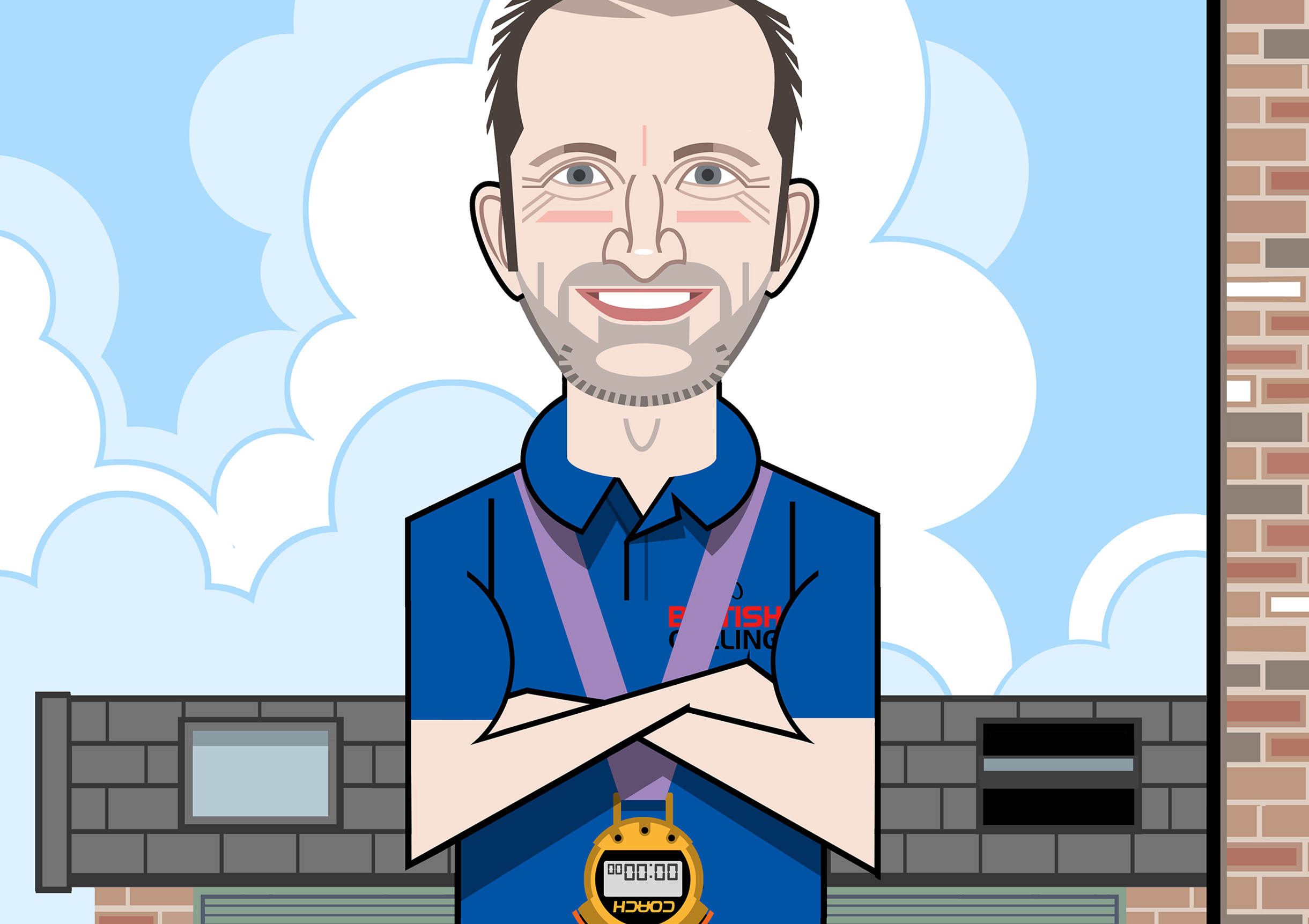
The latest race content, interviews, features, reviews and expert buying guides, direct to your inbox!
You are now subscribed
Your newsletter sign-up was successful
What is the impact of retirement on a rider who spent their career racing at the highest level? I asked Sir Jason Kenny, Britain's most decorated Olympian just that. "You find yourself trying to figure out your worth and place in the world," he says. "I always judged myself on my performance. If the stopwatch said I was good, then that's what I was. When that's taken away, you have to find a new way of seeing yourself."
It's not just Olympians who, after years of having a clear reason to get up in the morning, find themselves dejectedly hitting the snooze button. "Whenever someone's sense of identity, confidence and personal power is dependent on their success in a sport, the transition away from it can be tough," says sports psychologist Peter Hudson.
"Even at an amateur level, the quest for fitness and PBs and the team camaraderie can become a major part of one's waking hours. Retiring from all that can be very challenging." Kenny compares his experience of quitting cycling to that of a teenager heading off to university. "At 17 or 18, these kids leave home and try to figure out their place in the world.
But in sport I'd never had to do that. My place in the world had been dictated, from an early age, by my place on the squad and my finishing performance. I didn't start working out my place in the world [beyond cycling] until I was 33."
Kenny's words may help others from that 2012 Olympics golden generation, such as Geraint Thomas, who is due to retire at the end of this year. "There's an initial fear when you quit," adds Kenny. "Even if you're moving to a great job, it's a massive life decision as your whole world's been based around riding a bike."
He explains that, while his stepping away from competition has been relatively smooth, having taken on a sprint coach role with British Cycling, some of his peers have struggled to adapt to life after pro cycling.
Traumatic transition
Psychologist Hudson outlines why the change in lifestyle can be difficult. "The way that the pro peloton works these days - the sponsorship, number of races and level that riders have to perform at - has made it a much more demanding sport.
The latest race content, interviews, features, reviews and expert buying guides, direct to your inbox!
When suddenly that comes to an end, it's like having the rug pulled from under your feet. You have all this unstructured time and the adjustment to that can be very, very difficult." That difficulty is reflected in the number of former athletes affected by mental health issues since quitting their chosen sport.
A 2023 study, published in the journal Advances in Psychiatry and Behavioural Health, found that up to 20% of athletes experience anxiety, depression and even post-traumatic stress disorder after leaving competitive sport.
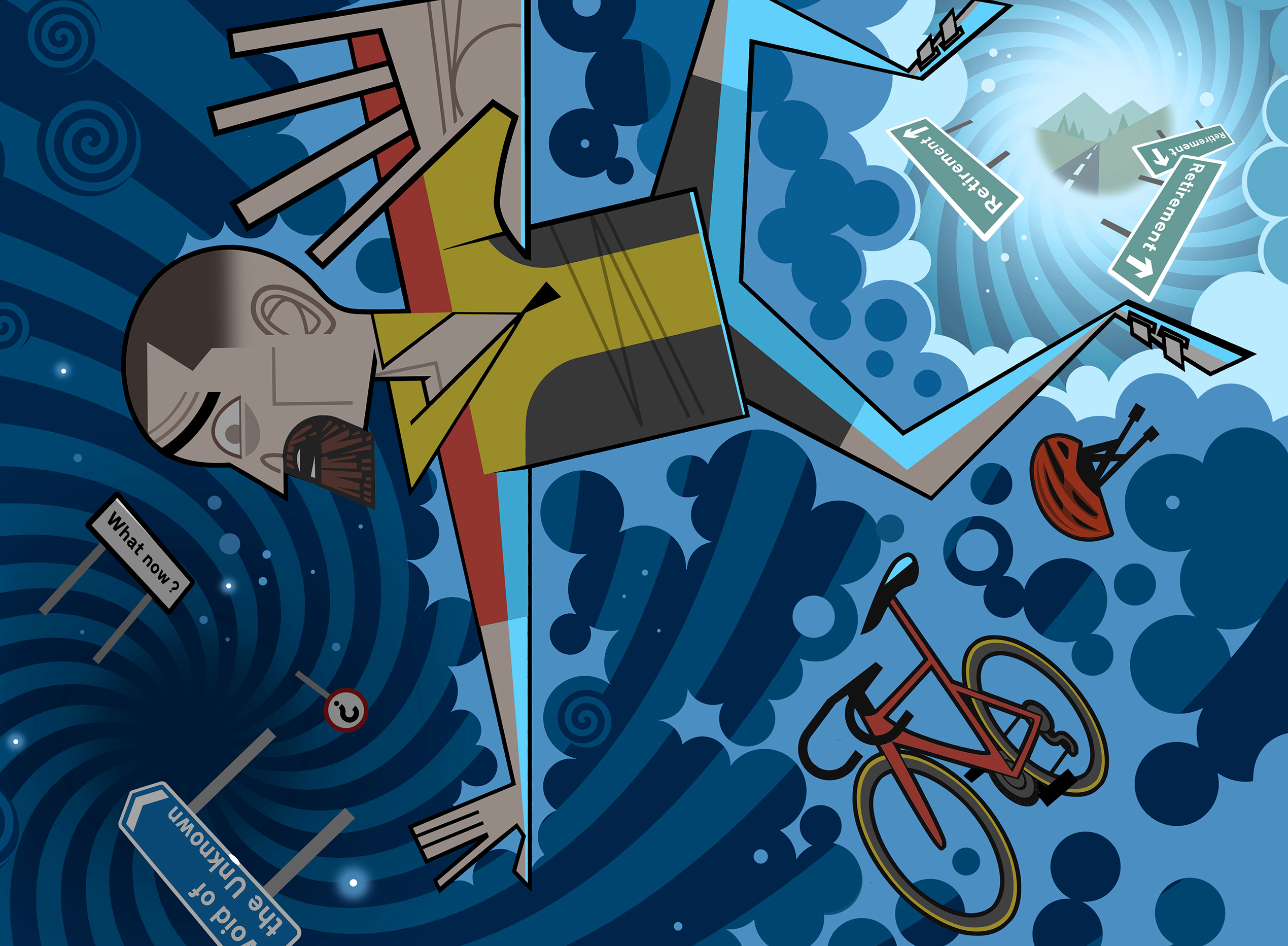
"The sudden loss of routine and identity so closely associated with their sport is one thing. Money, or the lack of it, can make retirement from elite cycling especially tough," adds Hudson. Despite his incredible achievements in the saddle, Bradley Wiggins has famously struggled with that lost sense of identity and purpose, as well as financial problems, after leaving the sport.
He recently told the Telegraph: "Within three years of retiring in 2016, I was a drug addict." Wiggins's plight is not as unusual as you might think. "Research suggests that up to 50% of professional cyclists are in financial distress or face bankruptcy within five years of retirement," says Jamie Anderson, a professor of leadership and strategy who mentors former pro riders.
"It's tough, and many cyclists may not have the financial literacy necessary to manage their earnings wisely. A lack of guidance or mentorship during their careers compounds the problem." Anderson, who resides in Belgium, believes that a rider's family background, and what he calls the "bubble of sanity" surrounding them, can play a part in how they fare after they quit.
"I see a lot of the young riders here [in Belgium], from working-class backgrounds, who are spotted at 14 and from that point on they're never encouraged to think about life after cycling.
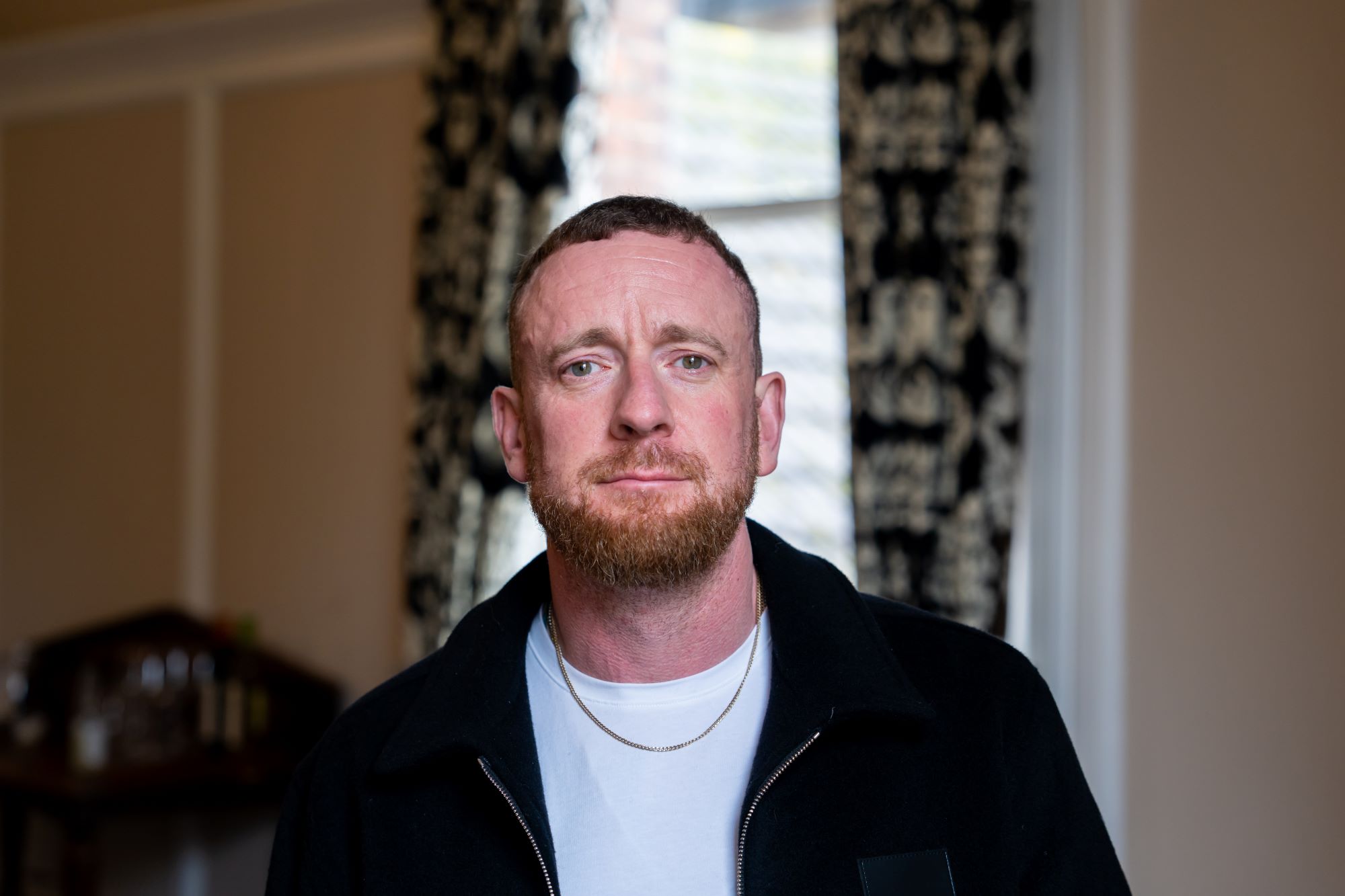
Their families don't always have the capabilities or the foresight to help with financial planning, either." Anderson believes that teams should provide more financial and educational support, and that former pros should be encouraged to become mentors.
For some riders, the decision to quit is taken out of their hands. "As a rider, you feel it coming," explains 38-year-old Belgian Ben Hermans, who announced his retirement in January after failing to secure a new contract with Cofidis. "Because I still loved to race my bike, I was always hoping to continue."
"But it was the first time in my 16-year career that I was ready to continue - and also ready to stop." Hermans believes his performances in the summer of 2024 had been good enough to merit a new contract. "But if you are getting to 38 years old and your team is not renewing your contract, you are in a very difficult situation." Duty of care?
Where a rider has had greater control over their decision to quit, the transition is often smoother, as Kenny's move from racing to coaching confirms. Athletes forced to retire through injury have higher rates of anxiety and depression when compared to the general population.
"Because I still loved to race my bike, I was always hoping to continue."
Ben Hermans
A number of ex-pros believe that cycling's administrators have a duty to ensure riders are better prepared for a life after competition but aren't facing up to that responsibility. Former Katusha-Alpecin pro Marcel Kittel is among those who have spoken out about the need to provide a smoother transition into retirement for elite riders. Former Irish road race champion Imogen Cotter quit cycling in April 2024 owing to the lingering psychological impact of a near-fatal collision with a van while training in Spain in 2022. She returned to the peloton after the crash, but struggled to rediscover her championship- winning form of 2021.
"I was hitting numbers better than my pre-crash levels," says the 31-year-old. "In many ways, it was the comeback I had only dreamed of - but racing had lost its importance to me. I'd be at races where people would stress over tiny details, and all I could think was, 'We could all die - why does this even matter?"
What does Cotter think makes quitting cycling so difficult for many riders? "A lot of cyclists attach a lot of their identity to the sport," she says. "Quitting is a really scary leap to take. At some professional outfits, they have a performance team around you to guide you with decisions like this.
Towards the end of my time with [Fenix Deceuninck] there was no performance team advising me as such; I was just doing everything on my own. I was left to make the leap with no real advice as to how I should do it." Cotter is thankful that, as a relative latecomer to the sport, having started at 24, she was better equipped for life post-cycling.
"My identity wasn't solely wrapped up in the sport - I'd also gone to university, worked full-time and lived outside of cycling before," she explains. "That said, I used to look at retired cyclists and imagine that it must be a bit miserable having nothing to work towards. But when it came to giving it up, I had no regrets.
I won the National Championships, and fought my way back after the crash - I'm proud of that. It just didn't fit my life anymore." As Kenny points out, while some organisations, including British Cycling, have support in place for cyclists looking to move on, much of the emphasis is on the rider to find their feet independently.
"We have a form of performance lifestyle support that links riders to various companies and universities when they want to get into other roles," says Kenny, "but it tends to be led by the rider. I think it should be a little bit more structured - and compulsory for development cyclists, so that they're more prepared to quit when the time comes." Amateurs not immune Struggling to adjust to life after competitive cycling isn't only a problem for pro riders.
"Amateurs can find themselves lost if they step away or are forced away from the structure, the training sessions and the unofficial support network of the cycling community," Hudson outlines the psychological hurdles. One rider who found himself in exactly this situation is 47-year-old American Josh Ross. "Stepping away from cycling did impact my mental health," he explains. "My social circle had become the cycling community. Not only the local races but also online, from Strava to following riders on social media."
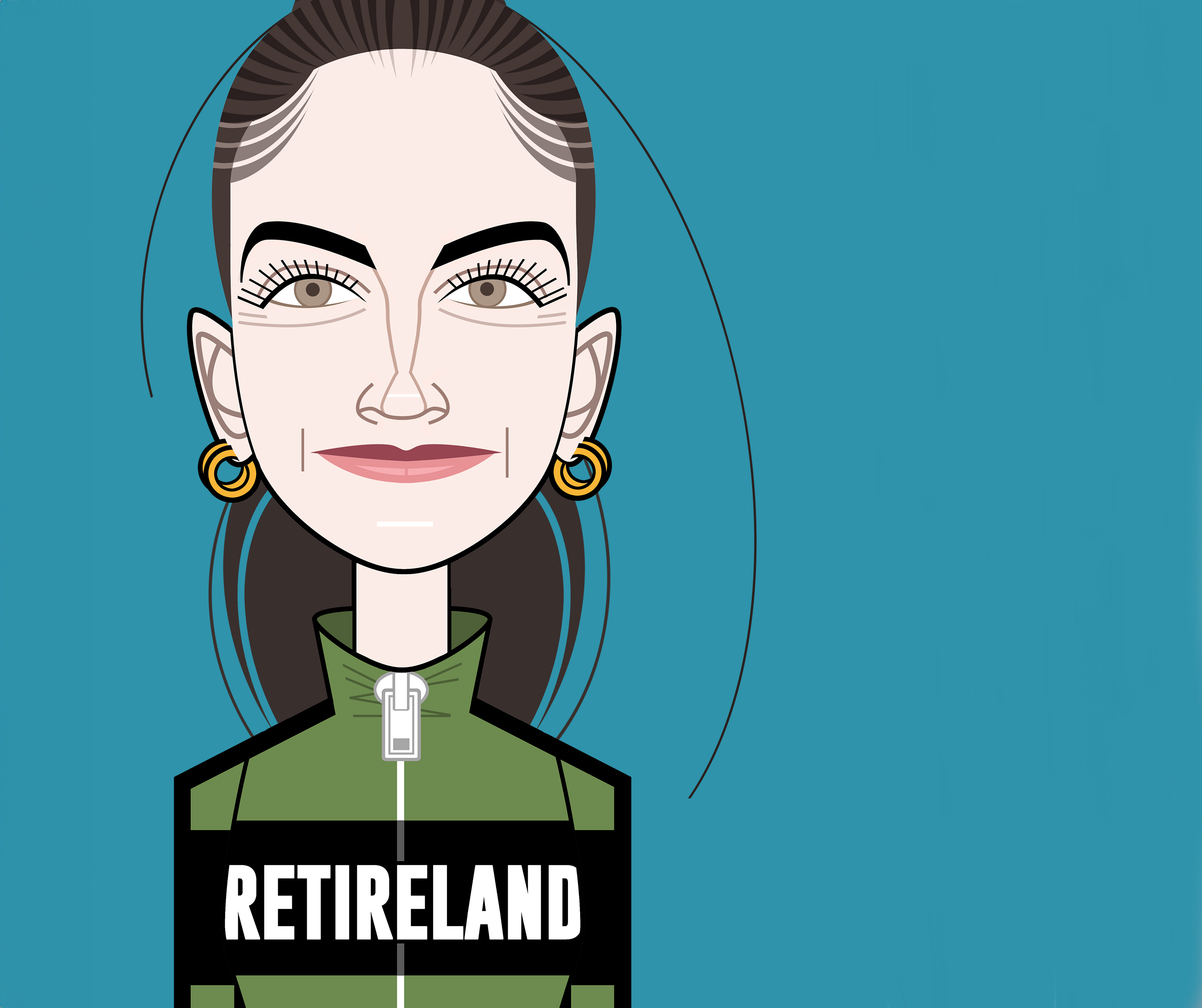
The former amateur racer from North Dakota, USA, was prescribed cycling by his doctor in 2018 as a means of staying fit without putting too much impact on his injured knees. "After about two weeks, I was hooked. After three months of riding, I'd bought a trainer and followed a programme from Wahoo. By early May - just a few months after taking it up - I did my first real race."
Ross was just discovering the highs of competitive road and gravel cycling when Covid-19 hit. "I used the time to improve my nutrition, downloaded all the apps, tuned into podcasts and bought more bikes, including a new road machine with aero bars. Everything was about riding faster, and when the restrictions were lifted, I was showing up to all the local races in the five-state area."
Just as Ross was becoming more successful in his newfound passion, the flame began to flicker. "Race fees started to increase dramatically to cover insurance and prize money, and bike parts jumped in price.
I realised most of my discretionary spending was going toward cycling. Even our vacations were centred around races." Ross's cycling compulsion was affecting his health too. "My teeth began to form cavities, thanks in no small part to the carb solutions I'd drink on long rides.
"I need to find a hobby that helps scratch my competitive itch"
Josh Ross
And I was having back problems from spending hours in an aero position." His tall, 6ft 4in frame meant his weight was higher than he desired, even when fit and lean.
"I would 'peak' for a race and place high, but feel tired and unhealthy off the bike." The catalyst for Ross came when he started a new business venture. "I was training less regularly. I stopped hitting PBs, my motivation was crushed, the weight crept back on.
When I showed up to a local ride, another rider literally poked me in the gut and asked, 'What is that?" Eventually Ross decided to quit altogether - and now, despite the ribbing, misses his cycling network.
"The social interaction either ceased or, in the case of online, didn't make sense to continue-there was no reason to follow and chat about the latest research or marginal gains." The demands of Ross's growing business prevents him from dwelling on his former life as a competitive cyclist. "I need to find a hobby that helps scratch my competitive itch," he says. "It just has to be more flexible than the 12-week training plans and long-distance travel for my A races."
How to quit: A psychologists advice
Elisabetta Borgia is a sports psychologist who works with Lidl-Trek's men's and women's teams. This is her advice on giving up racing... Some retired riders feel an immediate sense of relief and excitement, often describing the transition as a honeymoon phase. They enjoy freedoms they previously didn't have, such as eating what they want or skipping training.
Others, however, realise only after retiring how fortunate they were in their professional careers, with privileges like sponsored travel and financial stability. Many choose to stay in the sport in some capacity, whether as a coach, DS or analyst, but others prefer to explore entirely new career paths.
There is no right or wrong choice - what matters is that each rider finds a path that suits them personally and professionally. Borgia's top tips for a seamless retirement: Prepare for the identity shift: Cycling isn't just a job; it's a way of life. Without the structure of training and racing, many riders struggle with self-perception. Start exploring who you are beyond the sport before you retire. Plan your next steps:
Don't wait until your final season to think about what's next. Whether it's coaching, sports directing, or an entirely new career, having a roadmap will make the transition smoother. Build a support network: The loss of team camaraderie can be tough. Stay connected with former riders, seek mentorship or talk to a sports psychologist. Develop new routines and goals: Create a daily routine, set new fitness or professional goals, and keep pushing yourself in new ways.
Enjoyed this CW print magazine feature? Subscribe today
This piece first appeared in Cycling Weekly's print edition. To access our exclusive long-form features and investigations as soon as they appear, subscribe today and save 30% on the cover price.
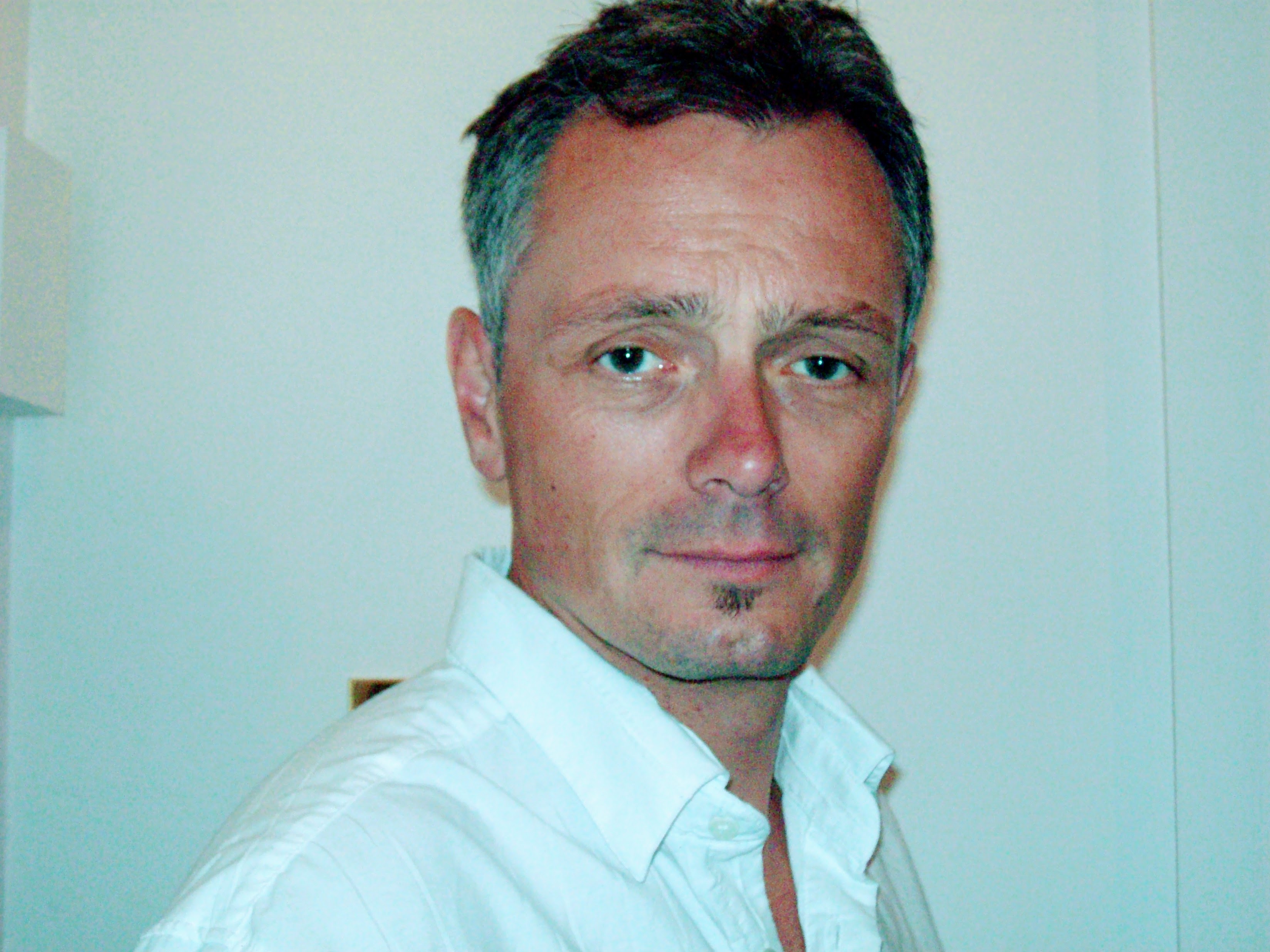
Rob Kemp is a London-based freelance journalist with 30 years of experience covering health and fitness, nutrition and sports sciences for a range of cycling, running, football and fitness publications and websites. His work also appears in the national press and he's the author of six non-fiction books. His favourite cycling routes include anything along the Dorset coast, Wye Valley or the Thames, with a pub at the finish.
You must confirm your public display name before commenting
Please logout and then login again, you will then be prompted to enter your display name.